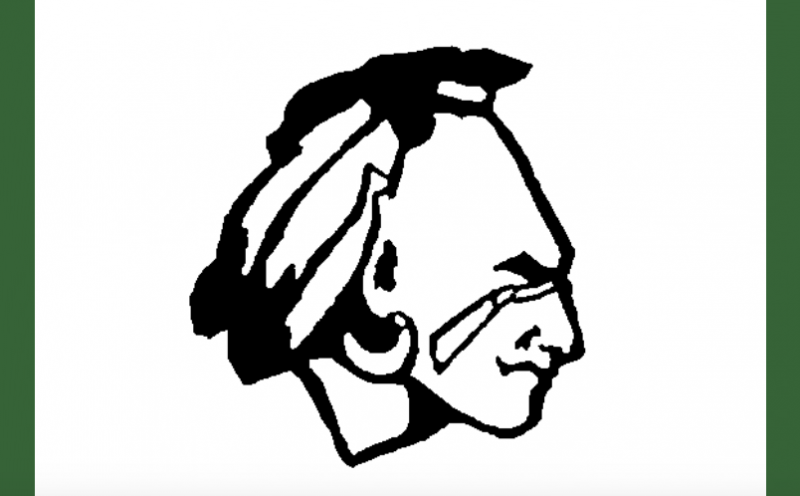Select Board urges public input on Indian logo debate
Before any decision is made on the controversial Dartmouth High Indian logo, town officials would like to see a process more inclusive of community sentiments.
At an Aug. 9 meeting, the Select Board unanimously voted to send a letter to the School Committee to encourage public input and to ask the board to host additional meetings until the process can become “as open as it can possibly be.”
“At this point, it is not in our purview as a Select Board to get involved in any of the decision making,” Board Member Stan Mickelson said. “At this point, it is in their hands.”
The logo issue has come up repeatedly in recent years, with sports teams and brands nationwide reexamining their minority representation and bills prohibiting Native American mascots for public schools introduced in the state legislature last year.
The Equality and Diversity Subcommittee, which was formed to look at the logo issue, among other topics, had decided to host a meeting Aug. 18 where the public could offer input on the topic.
That meeting date, though, had hinged on whether School Committee members agreed to open their meetings to the public by that date. Due to Covid concerns, that public meeting was postponed after the School Committee voted July 26 to keep its meetings closed.
A meeting will still likely take place on Aug. 18, but it will be held remotely and will have the authors of a letter seeking to keep the mascot — Clyde Andrews, Christopher Pereira and Jacob Ventura — make a presentation prior to any public hearing.
At the subcommittee’s June 22 meeting, two speakers spoke out against the mascot. Kempton Campbell, a 2019 Dartmouth High graduate who authored an independent study on mascots, called for the Indian to be retired, saying it reduces the identity of indigenous people “to a caricature.’’
Dr. Laurel Davis-Delano, a sociologist who has studied Indian mascots for more than 25 years, cited studies that found that introducing indigenous youth to mascots has a negative impact.
Davis-Delano discouraged the committee from seeking public opinion on the issue in part because this “implies that non-native people should be making decisions about representations that are not them.”
Andrews, Pereira and Ventura took exception to her comments.
“The people of Dartmouth are well-educated, respectful, open-minded and are more than capable of exercising their First Amendment rights to free speech in an open and public venue,’’ their letter read.













